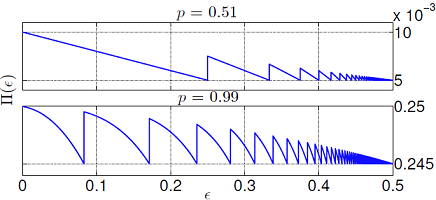Information Cascades with Noise
2012-2014 »
Abstract:
Abstract—Online networks enable agents to better observe the behavior of others and in doing so potentially learn from their actions. A key feature of models for such social learning is that information cascades can result, in which agents ignore their private information and blindly follow the actions of other agents. This paper considers the impact of noise in the form of observation errors in such a model. Similar to a model without noise, we show that with noise, both correct and incorrect cascades happen, with the same level of fragility. However, with noise, it is harder to overturn a cascade from one direction to the other. Using Markov chain analysis, we derive the net welfare (payoff) of each agent as a function of the agent’s private signal quality and the error rate. We show, somewhat surprisingly, that in certain cases, increasing the observation error rate can lead to higher welfare for all but a finite number of agents. In such cases, we compare and contrast adding additional noise with simply withholding observations from the first few agents. Our analysis assumes that all erroneous observations are available on a common database; however, we also discuss relaxing this assumption.We conclude by discussing the impact of different tie-breaking rules on the probability of wrong cascade and the impact of bounded rationality on the agents’ welfare.
